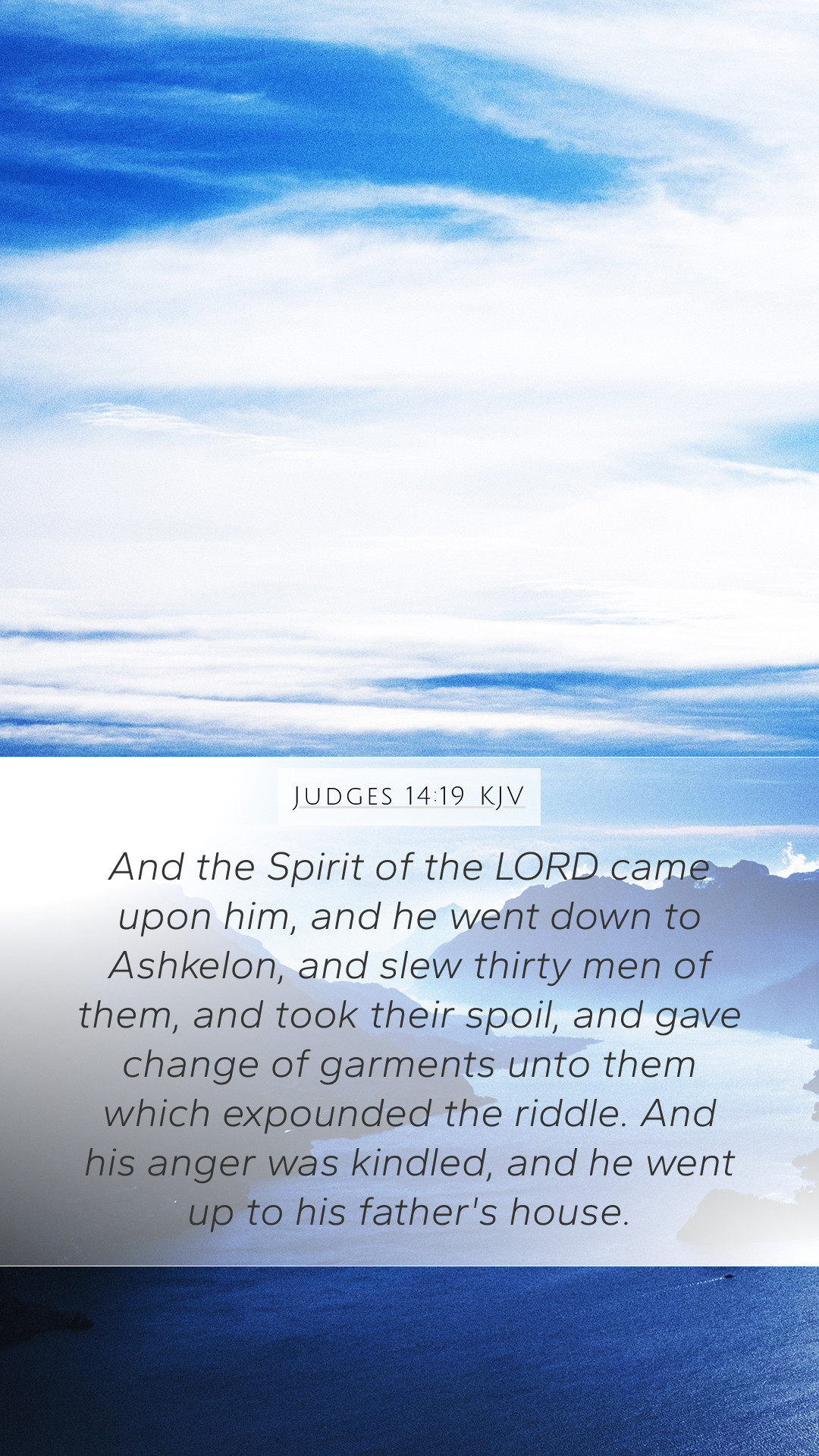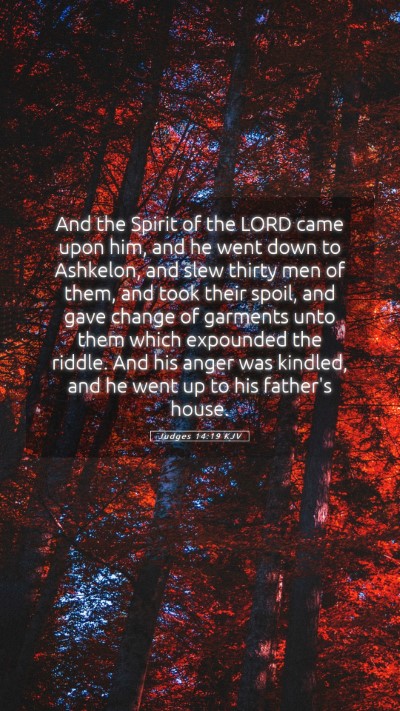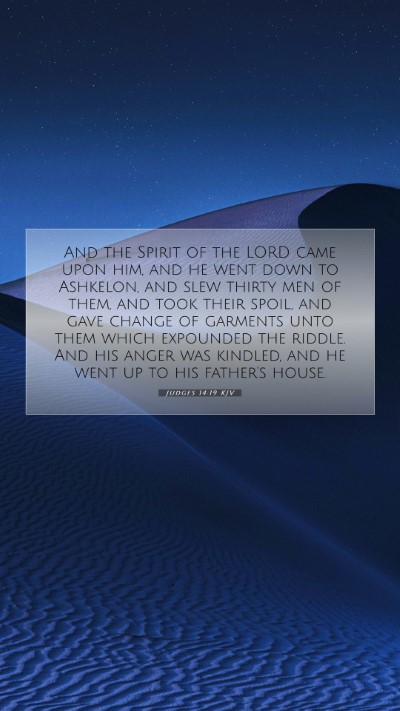Old Testament
Genesis Exodus Leviticus Numbers Deuteronomy Joshua Judges Ruth 1 Samuel 2 Samuel 1 Kings 2 Kings 1 Chronicles 2 Chronicles Ezra Nehemiah Esther Job Psalms Proverbs Ecclesiastes Song of Solomon Isaiah Jeremiah Lamentations Ezekiel Daniel Hosea Joel Amos Obadiah Jonah Micah Nahum Habakkuk Zephaniah Haggai Zechariah MalachiJudges 14:19 Meaning
What is the meaning of Judges 14:19?
And the Spirit of the LORD came upon him, and he went down to Ashkelon, and slew thirty men of them, and took their spoil, and gave change of garments unto them which expounded the riddle. And his anger was kindled, and he went up to his father's house.
Judges 14:19 Bible Verse Meaning
Bible Verse Commentary: Judges 14:19
Verse Reference: Judges 14:19 - "And the Spirit of the LORD came upon him, and he went down to Ashkelon, and slew thirty men of them, and took their spoil, and gave change of garments unto them which expounded the riddle: and his anger was kindled."
Overview of Judges 14:19
This verse occurs in the narrative of Samson, where the Spirit of the Lord empowers him to perform extraordinary feats. It follows a troubling episode in which Samson's riddle became a source of animosity and conflict. This commentary focuses on the implications of divine empowerment and the consequences of personal vendettas, as interpreted through historical and cultural lenses.
Combined Insights from Public Domain Commentaries
-
Matthew Henry:
Henry emphasizes the sovereignty of God at work through Samson's actions. The empowering presence of the Spirit is significant, demonstrating that divine strength is necessary for overcoming challenges. This incident involved not only physical combat but also the emotional turmoil stemming from his marriage's complications. Samson’s actions highlight the tensions in his relationships and the destructive nature of anger.
-
Albert Barnes:
Barnes provides an analysis of the cultural context of Samson’s actions. His choice to slay thirty men is portrayed as an act of retribution against those who wronged him, focusing on the themes of vengeance and justice. Barnes interprets this as a caution against allowing personal grievances to dictate actions, reinforcing that such anger often leads to further conflict.
-
Adam Clarke:
Clarke's commentary highlights the moral implications of Samson’s act, particularly regarding the use of violence as a means to resolve disputes. He discusses the significance of the Spirit of the Lord coming upon Samson, noting that it not only granted him physical strength but also a divinely sanctioned purpose. Clarke warns of the consequences of allowing anger and pride to govern one’s actions and encourages reflection on the nature of true strength over mere physical power.
Key Themes and Meanings
-
Divine Empowerment:
The phrase "the Spirit of the LORD came upon him" indicates that true strength comes from God. This empowerment is essential not just for physical deeds but also for executing justice.
-
Consequences of Anger:
Samson's anger leads to a violent act; this serves as a warning about the destructive potential of uncontrolled emotions, emphasizing the need for self-restraint.
-
Retribution versus Justice:
The desire for vengeance can cloud judgement and morality. This moment in Samson’s story raises questions about the righteousness of intervention and the cycle of violence that can ensue.
Related Scripture References
- Judges 13:25 - Discusses the Spirit of the Lord beginning to stir Samson.
- 1 Samuel 16:14 - Describes the Spirit of God departing from Saul, contrasting divine favor.
- Proverbs 29:11 - Speaks to the wisdom of controlling anger and the folly of quick responses.
Application for Today
In contemporary application, Judges 14:19 invites reflection on how we respond to conflict. Recognizing the divine empowerment available to face our challenges can inspire believers to act justly and with wisdom, rather than resorting to anger or vengeance. This verse serves as a reminder of the importance of seeking God's guidance in difficult situations, especially when emotions threaten to lead us astray.
Conclusion
Judges 14:19 encapsulates profound truths about divine strength, human emotion, and moral decision-making. Engaging with this verse through the insights of public domain commentaries allows for a more well-rounded understanding. As we study this and related scriptures, we gain valuable lessons in handling our own conflicts and the importance of divine assistance in our lives.


